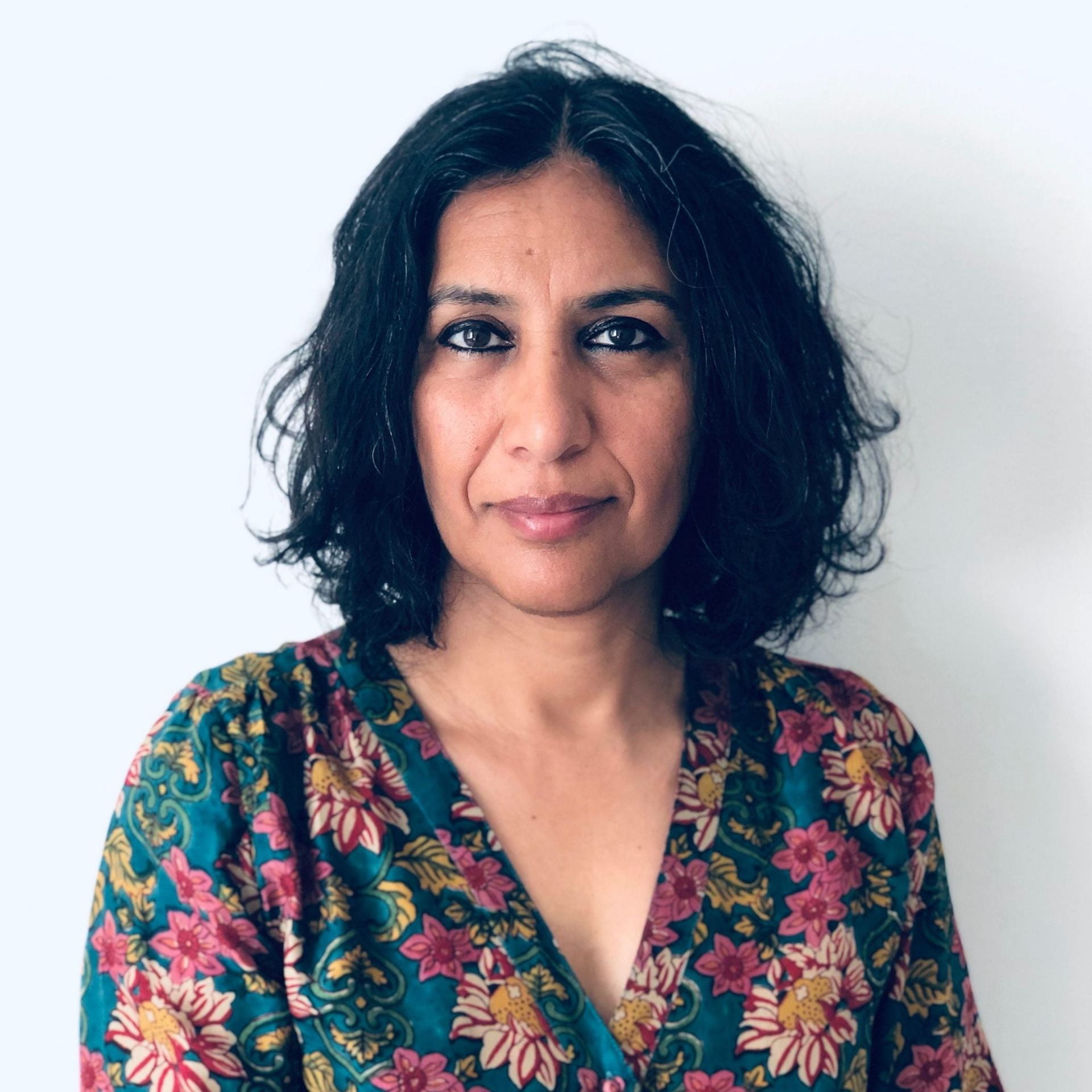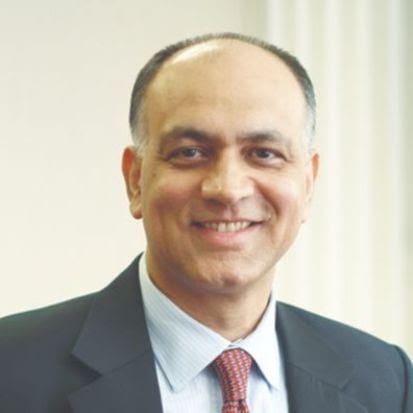Wednesday, February 23rd, 2022
12:00 – 1:30 p.m. ET
via Zoom
With India — one fifth of humanity and the world’s largest democracy — completing 75 years of independence, it is not only a time for reflection but also a time to take bold actions for an inclusive, sustainable, and prosperous future. The shadow of COVID-19 looms large over the economy despite some signs of economic recovery. The pandemic has exposed major structural weaknesses in the economy as well as its governance. Beyond the pandemic, other major systemic challenges – climate change, disruptive technology, rising inequality, and rising majoritarianism — merit urgent attention.
For India, doing more of the same will yield results we have become familiar with – higher inequality, poor education and health outcomes, high youth unemployment, weak investment growth, diminishing prospects in agriculture and industry, and a problematic banking sector. To tackle the challenges, India needs fundamental change across a range of areas – human capital, technology, agriculture, finance, trade, public-service delivery, and more. New ideas and strategies are needed.
The seminar discussed how India can use the next twenty-five years to restructure its economy, rejuvenate its democratic energy, and unshackle its potential.
The speakers in this webinar were Ravinder Kaur (University of Copenhagen) and Ajay Chhibber (GWU and Atlantic Council), and was moderated by IIEP Distinguished Visiting Scholar Sunil Sharma, with welcoming remarks by IIEP Director Jay Shambaugh.
This event was cosponsored by the Sigur Center.
About the Speakers:
 Ravinder Kaur is a historian of contemporary India. She is Associate Professor of Modern South Asian Studies and the Director of the Centre of Global South Asian Studies at the University of Copenhagen. Her core research focuses on the processes of capitalist transformations in twenty-first-century India. This is the subject of her most recent book Brand New Nation: Capitalist Dreams and Nationalist Designs in Twenty-First-Century India (Stanford University Press, 2020). This work was selected as the “Financial Times Best Book of the Year” in 2020 and longlisted for the “Kamaladevi Chattopadhyay NIF Book Prize” in 2021. She is also the author of Since 1947: Partition Narratives among the Punjabi Migrants of Delhi (Oxford University Press, 2007; 2nd edition, 2018).
Ravinder Kaur is a historian of contemporary India. She is Associate Professor of Modern South Asian Studies and the Director of the Centre of Global South Asian Studies at the University of Copenhagen. Her core research focuses on the processes of capitalist transformations in twenty-first-century India. This is the subject of her most recent book Brand New Nation: Capitalist Dreams and Nationalist Designs in Twenty-First-Century India (Stanford University Press, 2020). This work was selected as the “Financial Times Best Book of the Year” in 2020 and longlisted for the “Kamaladevi Chattopadhyay NIF Book Prize” in 2021. She is also the author of Since 1947: Partition Narratives among the Punjabi Migrants of Delhi (Oxford University Press, 2007; 2nd edition, 2018).
 Ajay Chhibber is a Distinguished Visiting Scholar, Institute for International Economic Policy, George Washington University and Non-Resident Senior Fellow at the Atlantic Council. He was the first Director General, Independent Evaluation Office, India, and Distinguished Visiting Professor at the NIPFP. He served as Assistant Secretary General, UN, and Assistant Administrator, UNDP. At the World Bank he was the Country Director in Turkey and Vietnam, and Director of the 1997 World Development Report. He has a PhD from Stanford University, an MA from the Delhi School of Economics and was awarded the David Rajaram Prize for best all-rounder at St. Stephen’s College, Delhi University.
Ajay Chhibber is a Distinguished Visiting Scholar, Institute for International Economic Policy, George Washington University and Non-Resident Senior Fellow at the Atlantic Council. He was the first Director General, Independent Evaluation Office, India, and Distinguished Visiting Professor at the NIPFP. He served as Assistant Secretary General, UN, and Assistant Administrator, UNDP. At the World Bank he was the Country Director in Turkey and Vietnam, and Director of the 1997 World Development Report. He has a PhD from Stanford University, an MA from the Delhi School of Economics and was awarded the David Rajaram Prize for best all-rounder at St. Stephen’s College, Delhi University.
Ajay is the co-author, along with Salman Anees Soz, of the recently published book Unshackling India: Hard Truths and Clear Choices for Economic Revival (HarperCollins, 2022). Unshackling India examines the question: Can India use the next twenty-five years, when it will reach the hundredth year of independence, to not only restructure its economy but rejuvenate its democratic energy, unshackle its potential, and become a genuinely developed economy by 2047? The book argues that India can foster a prosperous and inclusive economy if it sets its mind to it, acknowledges the hard truths and lays out the clear choices and new ideas India must adopt towards that end.
About the Moderator:
 Sunil Sharma is a Distinguished Visiting Scholar at the Institute for International Economic Policy, Elliott School of International Affairs, The George Washington University, Washington DC, USA, and a Senior Associate at the Council on Economic Policies, Zurich, Switzerland. He was Assistant Director in the IMF’s Research Department from 2015-2018, and the Director of the IMF-Singapore Regional Training Institute (STI) in Singapore from 2006-2015. Before moving to Singapore in 2006, Sunil was Chief of the IMF Institute’s Asian Division in Washington, D.C. Prior to joining the IMF in 1992, he was on the Economics faculty at the University of California, Los Angeles (UCLA). Sunil has a Ph.D. and a M.A. in Economics from Cornell University, a M.A. from the Delhi School of Economics, and a B.A. (Honors) from St. Stephen’s College, Delhi University. He has published widely on economic and financial topics, and his current interests include governance, systemic hazards, complex systems, the international financial architecture, and the institutional structure and design of financial regulation.
Sunil Sharma is a Distinguished Visiting Scholar at the Institute for International Economic Policy, Elliott School of International Affairs, The George Washington University, Washington DC, USA, and a Senior Associate at the Council on Economic Policies, Zurich, Switzerland. He was Assistant Director in the IMF’s Research Department from 2015-2018, and the Director of the IMF-Singapore Regional Training Institute (STI) in Singapore from 2006-2015. Before moving to Singapore in 2006, Sunil was Chief of the IMF Institute’s Asian Division in Washington, D.C. Prior to joining the IMF in 1992, he was on the Economics faculty at the University of California, Los Angeles (UCLA). Sunil has a Ph.D. and a M.A. in Economics from Cornell University, a M.A. from the Delhi School of Economics, and a B.A. (Honors) from St. Stephen’s College, Delhi University. He has published widely on economic and financial topics, and his current interests include governance, systemic hazards, complex systems, the international financial architecture, and the institutional structure and design of financial regulation.
Welcoming Remarks:
 Jay Shambaugh is a Professor of Economics and International Affairs, and Director of the Institute for International Economic Policy at the Elliott School of International Affairs, George Washington University. His area of research is macroeconomics and international economics. He has had two stints in public service. He served as a Member of the White House Council of Economic Advisors from 2015-2017. Earlier, he served on the staff of the CEA as a Senior Economist for International Economics and then as the Chief Economist. He also spent 3 years as the Director of the Hamilton Project at the Brookings Institution. Jay is also a Faculty Research Fellow at the NBER and Non-Resident Senior Fellow in Economic Studies at Brookings. Prior to joining the faculty at George Washington, Jay taught at Georgetown and Dartmouth and was a visiting scholar at the IMF. He received his Ph.D. in economics from the University of California at Berkeley, an M.A. from the Fletcher School at Tufts, and a B.A. from Yale University.
Jay Shambaugh is a Professor of Economics and International Affairs, and Director of the Institute for International Economic Policy at the Elliott School of International Affairs, George Washington University. His area of research is macroeconomics and international economics. He has had two stints in public service. He served as a Member of the White House Council of Economic Advisors from 2015-2017. Earlier, he served on the staff of the CEA as a Senior Economist for International Economics and then as the Chief Economist. He also spent 3 years as the Director of the Hamilton Project at the Brookings Institution. Jay is also a Faculty Research Fellow at the NBER and Non-Resident Senior Fellow in Economic Studies at Brookings. Prior to joining the faculty at George Washington, Jay taught at Georgetown and Dartmouth and was a visiting scholar at the IMF. He received his Ph.D. in economics from the University of California at Berkeley, an M.A. from the Fletcher School at Tufts, and a B.A. from Yale University.
IIEP Rethinking Capitalism and Democracy Series
The COVID-19 pandemic, like the global financial crisis a decade ago, has laid bare the cracks in the leading capitalist democracies. Fissures in the political, social, economic, and financial orders, accompanied by an increasingly stressed natural environment, pose serious and possibly existential threats to these societies, as exploding income and wealth inequality subverts the integrity and fairness of markets and elections, weak regulatory oversight increases the likelihood and severity of the next crash, and the visible effects of climate change threaten lives and livelihoods and drive migrations. The three spheres of wellbeing – political and social, economic and financial, and the natural environment, are each becoming more fragile while their complex interrelationships are producing wicked challenges. The IIEP webinar series on Rethinking Capitalism and Democracy examines these difficult questions and possible policy responses.
This event will be co-sponsored by the Sigur Center.
